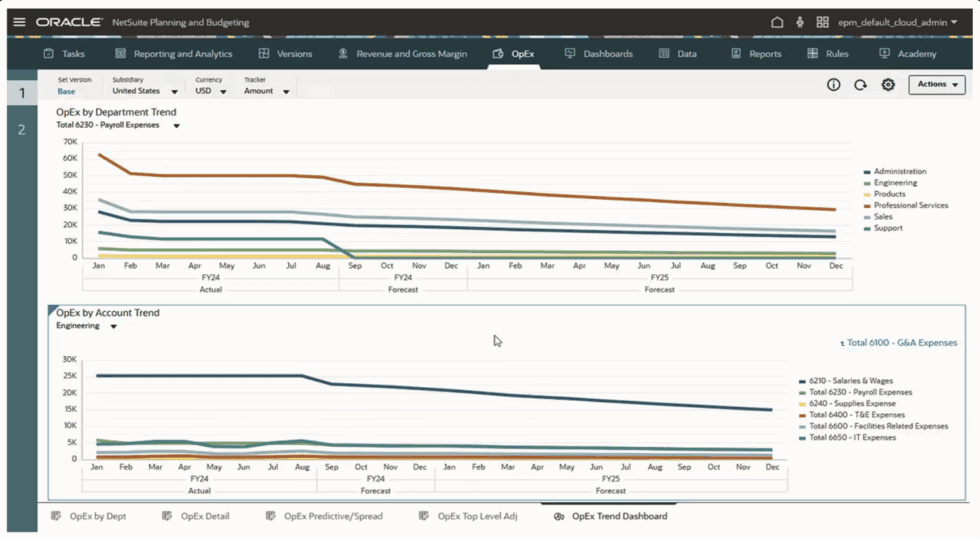Introduction
In today’s digital world, businesses need to move faster and work smarter. That means having clear visibility across departments and systems and finding ways to reduce manual labor wherever possible. NetSuite and Salesforce are two of the most trusted platforms available, with NetSuite focusing on ERP and Salesforce as a go-to for CRM. On their own, they’re powerful. But when you connect them, you get a streamlined, end-to-end solution that ties your front-end sales and customer service to your back-end operations like finance, inventory, and order management.
More companies are starting to integrate NetSuite and Salesforce because it helps them keep their data in sync, improve sales forecasting, and make smarter decisions with a clearer view of the business. If your teams are spending time double-entering data or struggling with disconnected systems, this kind of integration can be a game-changer.
Why Integrate NetSuite and Salesforce?
Both systems serve distinct but complementary functions:
- Salesforce is the world’s leading CRM, designed to manage customer relationships, sales pipelines, and marketing campaigns.
- NetSuite is a comprehensive ERP that manages finance, operations, inventory, order fulfillment, and more.
Without integration, these platforms operate in silos, creating friction in workflows, duplicated data entry, and limited real-time insight. Integration bridges the gap between sales and finance, customer service and inventory, forecasting and procurement, and more.
What Are the Most Common Integration Use Cases?
1. Automated Quote-to-Cash Process
Sync opportunities, quotes, and orders between Salesforce and NetSuite to reduce manual entry and billing delays.
2. Real-Time Customer and Product Data
Ensure that customer records, product catalogs, pricing, and order histories sync across both platforms.
3. Inventory Visibility for Sales Teams
Allow your sales reps to check product availability and order status in real-time, directly within Salesforce.
4. Better Financial Forecasting
Link Salesforce pipeline data with NetSuite’s financial tools for more accurate and timely forecasts.

NetSuite’s Planning and Budgeting
Prebuilt Salesforce-to-NetSuite Integration
If you want to avoid the time and complexity of a custom build, a prebuilt integration is a fast and flexible option. One of the most popular solutions is Celigo’s Salesforce NetSuite Integration App. Celigo’s Integration App offers a robust, preconfigured connector between Salesforce and NetSuite. It’s built specifically for growing companies that want seamless syncing between CRM and ERP.
Key Features Include:
- Out-of-the-box flows for syncing accounts, contacts, opportunities, orders, products, and more
- Real-time data synchronization
- Customizable field mapping and logic without the need for deep technical resources
- Error management dashboard for visibility into sync issues
Benefits:
- Go live in days, not months
- Scale as your business grows
- Minimal IT maintenance required
Other notable prebuilt options include:
- Dell Boomi AtomSphere
- Jitterbit Harmony
- Workato Salesforce-NetSuite connectors
These platforms offer similar capabilities with varying degrees of customization and scalability.

Common Questions
Can NetSuite integrate directly with Salesforce?
Yes, through prebuilt integration apps like Celigo or via custom API development. Prebuilt apps are preferred for speed and simplicity.
Is the integration bidirectional?
Yes. Prebuilt apps like Celigo allow data to flow both ways, for example, pushing Salesforce opportunities to NetSuite sales orders and syncing NetSuite invoice data back to Salesforce.
How long does the implementation take?
A prebuilt app can be implemented in as little as 2–4 weeks, depending on your customization needs.
Conclusion
Bringing NetSuite and Salesforce together, especially with a prebuilt solution like Celigo’s Integration App, can be a game-changer for your business. When your CRM and ERP systems are connected, your teams spend less time chasing down data and more time making informed decisions. You get better reporting, smoother processes, and a more consistent experience for your customers from start to finish.
If you’re scaling and running into issues with disconnected systems or manual workarounds, this kind of integration can help you get ahead. It’s not just about syncing data; it’s about building a smarter, more efficient business.
Thinking about integrating Salesforce and NetSuite but not sure where to start? Let’s talk through your goals and figure out the right solution for your team and your timeline.
About Us
We areNetSuite Solutions Providerswith 30+ years of combined experience. We specialize in implementation, optimization, integration, rapid project recovery & rescues, and custom development to meet any business need. Although every business is unique, serving over 40 NetSuite clients during the last 6 years our NetSuite Consulting team has most likely seen your challenge and created a similar solution. For more information on NetSuite solutions or questions about your project contact usHere.


